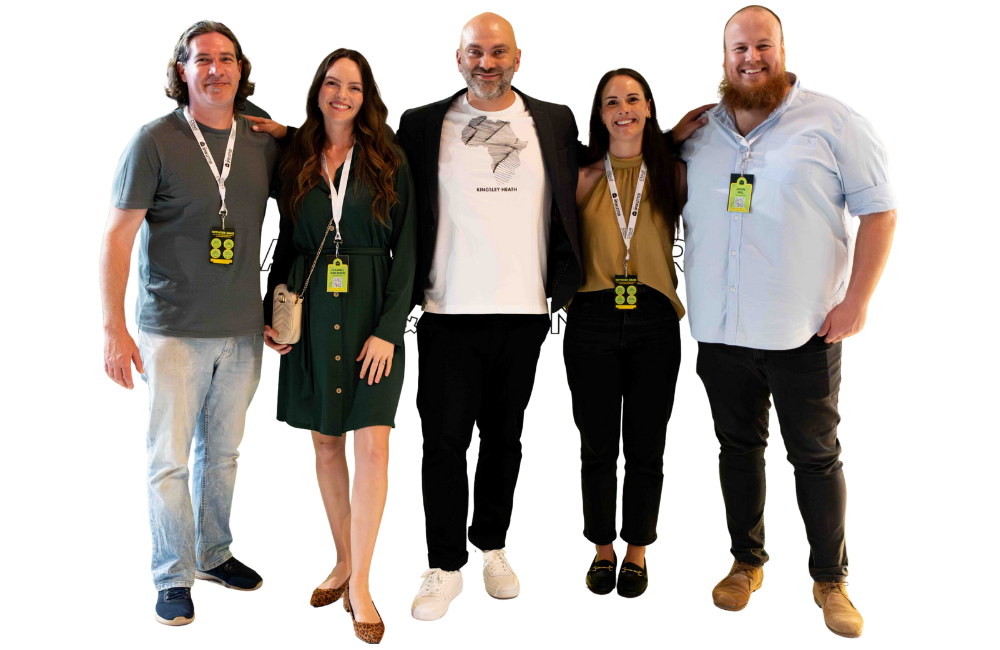Hi {{ FIRSTNAME | there, }}
Hungry? The Eastern Cape Parks and Tourism Agency is blaming people from Lesotho for illegally hunting, killing and eating every single animal in SA’s 13 000-hectare Ongeluksnek Nature Reserve, just northwest of Kokstad. This while Lesotho leadership debates whether it should proceed with land claims for half of South Africa’s land.
In this Open Letter:
A bit too dry: Business inspo from the coming El Niño.
Drone cops, biltong seizures & cleaner beaches in KZN.
Part deux: 8 More costly startup mistakes to avoid.
Growth fundamentals: Founder insights with Marc from Ollie Health.
TRENDING NOW
When El Niño Comes
It’s time to innovate…
It’s official, there’s a good chance we’re in for a particularly strong El Niño towards the end of 2023. But what does that mean? Failed crops, drought, floods, late rains and loads of freak weather – you know, end-of-the-world kind of stuff.
We’re currently in the tail end of La Niña (the cooler surface temps in the eastern Pacific Ocean often bring wetter-than-usual weather to Southern Africa, which goes a long way to explain our current crazy winter conditions), with El Niño set to replace it later this year.
We know, because we’ve seen it before…
Snapshot of El Niño 2014–2016

This graphic was made by an Italian content creator who’s since taken down their website :-(
What happens is the Pacific Ocean warms too much, which reverses trade winds, causing weather havoc around the world. Specifically, droughts in the southern hemisphere.
But here’s the thing: It’s cyclical, happening every 2–7 years (the last one was in 2017, during Cape Town’s infamous Water Crisis). And that means looking at what happened in the past gives us a good indication of what’s likely to happen again.
What happened in the past
Note: We used 2015 as a guide because it was a doozy.
Where’s the opportunity?
Those lists above should read like a job card for an innovator. With much of South African agriculture dependent on rainfall, now’s the time for water storage and management innovation.
Or what about early warning systems or drought management for farmers? Remember the African farmers who track droughts using SA-built satellites? Or consider innovations like Stellenbosch startup Arable’s container farms as El Niño-beating solutions.
Speaking of, what about solutions to ensure food security? Or ways to improve local government’s communication with farmers? As with any innovation these days, we bet AI will have a say in helping farmers determine the best time to plant, water, treat and harvest.

FarmerGPT was outstanding in the field.
High temperatures are going to create a need for more (and more innovative) solar solutions. And don’t underestimate the power of creating a crisis-communication mouthpiece – we talk about EskomSePush a lot, because, well, it’s genius – what about the same thing but for El Niño (early warnings, responses, reporting, sharing info etc.)?
Or think: Better ways to track fish migrations in the oceans. Better ways to predict flooding and losses – insurance companies might shower you in gold for the right new tool.
Basically, read through the list of possible effects above and ask yourself: “Hmm, can I build a tool to help with that?” Then, see if you can make money with it. And you’re on your way.
The best part? This repeats every few years, so whatever you build now will be useful practically forever.
Did we spark an idea or miss something? Hit reply if you want some more info on a specific region or possible El Niño effect…
IN SHORT
🌊 Open Waters. After several KZN beaches were closed last week due to “alien materials” found within a pump station causing it to malfunction, beaches in Umhlanga have re-opened as water quality has improved (read: less 💩 in the water you swim in).
🔻 Crashing Down. Local e-commerce Takealot has reported a R407 million loss for the year ending 31 March 2023. This while parent company Naspers profit plummets by R147 billion.
💻 More IT jobs. Some good news as demand for systems and network administrators, database designers, developers and admins has increased by 6% over the last quarter in SA.
👀 Drone Cops. SAPS has announced a new crime-fighting initiative with 13 officers of the Gauteng Drone Squad getting their operator licenses. Drones are seen by many as an effective way to combat crime – nicely done.
🥩 Biltong run. A South African man tragically had 40kg of biltong & droëwors seized (and destroyed) at the Minneapolis-St. Paul International Airport in the USA. Absolutely devastating given the US street value of biltong is around R2’000 per kg.
📱 Dialling in. FNB and MTN set to partner to provide better services to the banking giant’s cellular offering, FNB Connect. By leveraging MTN’s existing infrastructure, FNB hopes to accelerate and expand their telecoms offering.
BUILDER’S CORNER
8 More Big Startup Founder Mistakes
A few weeks ago we covered 8 costly startup founder mistakes. But startups are complex and there are way more than 8 things that can go wrong. Here’s your part 2…

Mistakes were made.
Mismanaging hiring and marketing expenses: These are typically the two largest expenses for startups. If not managed properly, they can drain your resources fast.
Excessive legal fees: Negotiate the scope and cost of legal work beforehand. Use standardised legal documents where possible and consider payment plans to spread out the cost. There are some free templates available that can help you get going like these from Digital Africa Collective.
Choosing the wrong legal firm: Opt for firms that understand the long-term potential of startups. They’re more likely to provide better value for your money. If you are looking for legal representation for your startup, hit reply and let us know, we can point you in the right direction.
Misguided use of advisors: Advisors can provide valuable insights, but it's important to align their incentives with your startup's success. Consider asking them to invest in your startup instead of compensating them with equity.
Hasty hiring decisions before product-market-fit: Ideally, you should only start hiring once your startup has customers and a growing revenue stream.
Distributing equity all willy-nilly: Be cautious about giving away equity, especially to those who aren't involved full-time. Remember, it's okay to negotiate these distributions. And when you are giving away equity, consider good-leaver/bad-leaver clauses and a cliff. These two things will make sure someone is executing in line with expectations for a period of time (before they earn shares) and, should they leave on bad terms (i.e. join a competitor), they could end up forfeiting their shares altogether.
Misunderstanding the role/purpose of events: When participating in events, be strategic and creative. Your goal is to extract as much value from the event as possible without overspending. Don’t get caught in startup theatre – this is the notion that people talk, pitch and do startup things, yet very few are actually tracking sanity metrics and building viable businesses.
Unwillingness to learn new skills: As a founder, be ready to wear many hats and learn new skills. This versatility can be a major asset in the early stages of your startup. Sharpen up on design, marketing, and hey, even a bit of coding if you need to. In fact, share The Open Letter with 3 friends and get the top 50 tools that can help you do more, plus 25 AI tools that can help you do it even faster. (Scroll down to get your personal sharing link.)
Think we missed one? Lets us know by replying…
THE THREAD
Imagine turning your subscription model into a currency. After a successful exit from his previous venture, Marc Gregory saw another gap and founded Ollie Health, a virtual B2B mental health platform.
Tune in to find out how he achieved this and what else is on his radar.
02:50 Road to becoming a founder
15:01 Currency as a busines model
22:21 Fundamentals of growth
25:51 AI as a competitor
31:33 Marc shares insights into a potential opportunity
Or if podcast app is your vibe, catch them here:
Like our podcast? Remember to subscribe and never miss an episode.




